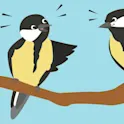
Young Minds
07 Jun 2018
Making your research accessible to school kids
Our authors talk about their experience communicating their research to a younger audience.

Young Minds
07 Jun 2018
Our authors talk about their experience communicating their research to a younger audience.
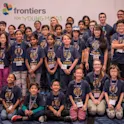
Young Minds
31 May 2018
Shaking in their lab coats: young students of the Brain Explorer Academy give scientists feedback during a live peer review event.

Young Minds
19 Apr 2018
Are you a courageous scientist ready to freely share your work and empower the scientists of the future?
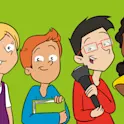
Young Minds
07 Mar 2018
Our dedicated Frontiers for Young Minds team has been working hard to revamp the website for our growing community.
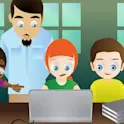
Young Minds
28 Feb 2018
“It doesn’t snow where I live, so I didn’t understand what you wrote about snowmen.”

Young Minds
09 Feb 2018
“It doesn’t matter what your background, gender, ethnicity or socio-economic status is; if you can ask questions, you can do science.”

Young Minds
18 Dec 2017
“I’ve often thought that we could do a lot better job of explaining “advanced” mathematical concepts in simple language for the benefit of a wider audience.”

Frontiers news
14 Nov 2017
A new partnership with the Patrick & Lina Drahi Foundation will bring cutting-edge science to children in new languages

Young Minds
05 Jul 2017
Frontiers for Young Minds content of articles – both text and images – are free to access, download, and reproduce in educational materials.
Young Minds
16 Jun 2017
To highlight why each discovery is important with background and context, these collections of articles take non-technical readers through the core of a field. Frontiers for Young Minds is excited to share its latest effort to bring high-quality science content to interested young readers everywhere. Our authors have already highlighted some of the latest scientific developments – from alternative fuels to adolescent risk-taking – and we want to take the next step. We want researchers to help us dive deeper into the central ideas and tools in each field, but in the same kid-friendly format as before. That is why we have launched our Collections: groups of articles covering a central theme from a variety of perspectives and methods. While the Young Minds New Discovery articles have provided snapshots of the cutting-edge, we want our Core Concept articles to provide the background and context to help young readers understand why each discovery is so important. Each Collection will serve as an in-depth guide, taking readers through the core of a field: one Collection introducing each region of the brain or exploring Earth’s systems from the cryosphere to the atmosphere. Each article in the Collection […]

Neuroscience
23 May 2017
The research, published in Frontiers for Young Minds, focuses on early-life nutrition and how that influences brain development, using pigs as a human proxy.

Young Minds
16 May 2017
That’s 100 articles of cutting-edge science available – for free – for kids, teens, parents, teachers, and the young-at-heart.
Frontiers news
11 Apr 2017
Frontiers for Young Minds is expanding and we are pleased to announce the launch of its newest specialty section, Understanding Mathematics.
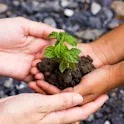
Frontiers news
11 Oct 2016
Frontiers for Young Minds is proud and excited to announce the launch of its newest specialty section, Understanding Biodiversity. This new specialty will be led by the Specialty Chief Editor Chelsea Specht of UC Berkeley and will provide articles that help our curious young readers to better understand the biological diversity that exists on our planet! The Understanding Biodiversity specialty is now open for submissions and will publish articles with the following scope: Biology is the study of life, and what could be more important than that? When scientists study the variety of life – called biodiversity – they can use tools from ecology, evolution, conservation, genetics, and even the management of our natural resources. They find and describe new species, explore uncharted ecosystems, study how and why species change, investigate patterns in where and when species live, and study processes that make it possible for an ecosystem to survive or thrive. This section of Frontiers for Young Minds will include articles that describe, explore, and explain biological diversity on Earth – past, present, and future. From paleontology to botany to zoology (all animals big and small, from elephants to microbes), articles will address how living things adapt, change, and use […]

Young Minds
23 Aug 2016
Frontiers for Young Minds is growing and we are celebrating the first two papers in our youngest Specialty Section Understanding Health. This new specialty is led by our Specialty Chief Editors, Fulvio D’Acquisto and Jay Giedd. Read the Articles Learn about how Nanotechnology could be the next way to treat cancer by providing an alternative delivery system that is so tiny, yet could be the next solution in targeting cancer cells (Author: Dr. Courtney Thomas). Read full article. Come and explore what a Biofilm is including how they are formed and how we can try to beat them to treat infections (Authors: Drs. Mira Okshevsky and Rikke Louise Meyer). Read the full article. You can look forward to more articles in this exciting new specialty coming soon. Find Out More More information about participating in Frontiers for Young Minds can be found here. Frontiers for Young Minds is currently accepting submissions in four specialties: Understanding Health Understanding Neuroscience Understanding the Earth and its Resources Understanding Astronomy and Space Science Researchers interested in submitting Frontiers for Young Minds versions of their work can find more information here. Please contact kids@frontiersin.org for any additional questions.
Get the latest research updates, subscribe to our newsletter